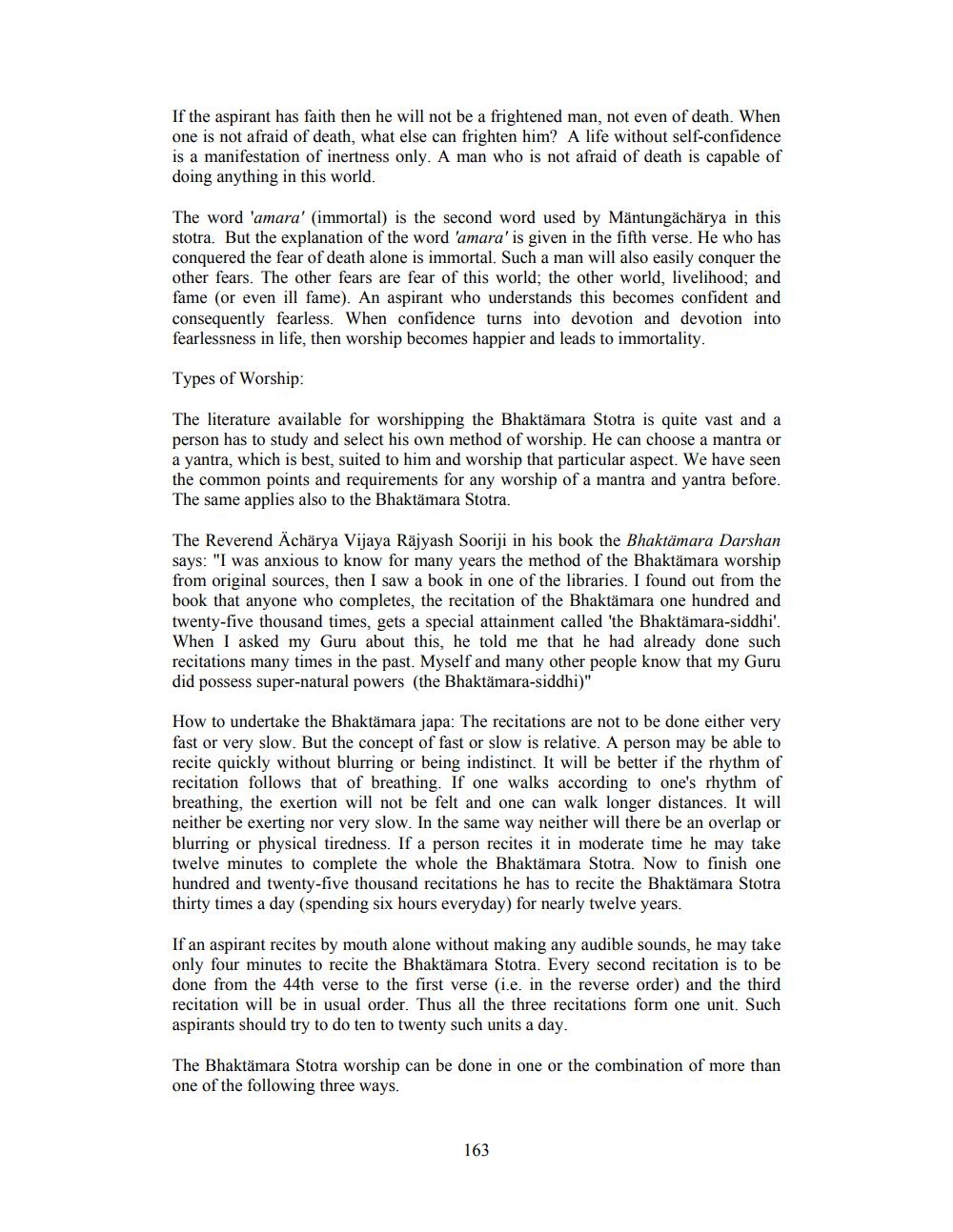________________
If the aspirant has faith then he will not be a frightened man, not even of death. When one is not afraid of death, what else can frighten him? A life without self-confidence is a manifestation of inertness only. A man who is not afraid of death is capable of doing anything in this world.
The word 'amara' (immortal) is the second word used by Mäntungächärya in this stotra. But the explanation of the word 'amara' is given in the fifth verse. He who has conquered the fear of death alone is immortal. Such a man will also easily conquer the other fears. The other fears are fear of this world; the other world, livelihood; and fame (or even ill fame). An aspirant who understands this becomes confident and consequently fearless. When confidence turns into devotion and devotion into fearlessness in life, then worship becomes happier and leads to immortality.
Types of Worship:
The literature available for worshipping the Bhaktämara Stotra is quite vast and a person has to study and select his own method of worship. He can choose a mantra or a yantra, which is best, suited to him and worship that particular aspect. We have seen the common points and requirements for any worship of a mantra and yantra before. The same applies also to the Bhaktämara Stotra.
The Reverend Ächärya Vijaya Räjyash Sooriji in his book the Bhaktämara Darshan says: "I was anxious to know for many years the method of the Bhaktämara worship from original sources, then I saw a book in one of the libraries. I found out from the book that anyone who completes, the recitation of the Bhaktämara one hundred and twenty-five thousand times, gets a special attainment called 'the Bhaktämara-siddhi'. When I asked my Guru about this, he told me that he had already done such recitations many times in the past. Myself and many other people know that my Guru did possess super-natural powers (the Bhaktamara-siddhi)"
How to undertake the Bhaktämara japa: The recitations are not to be done either very fast or very slow. But the concept of fast or slow is relative. A person may be able to recite quickly without blurring or being indistinct. It will be better if the rhythm of recitation follows that of breathing. If one walks according to one's rhythm of breathing, the exertion will not be felt and one can walk longer distances. It will neither be exerting nor very slow. In the same way neither will there be an overlap or blurring or physical tiredness. If a person recites it in moderate time he may take twelve minutes to complete the whole the Bhaktämara Stotra. Now to finish one hundred and twenty-five thousand recitations he has to recite the Bhaktämara Stotra thirty times a day (spending six hours everyday) for nearly twelve years.
If an aspirant recites by mouth alone without making any audible sounds, he may take only four minutes to recite the Bhaktämara Stotra. Every second recitation is to be done from the 44th verse to the first verse (i.e. in the reverse order) and the third recitation will be in usual order. Thus all the three recitations form one unit. Such aspirants should try to do ten to twenty such units a day.
The Bhaktämara Stotra worship can be done in one or the combination of more than one of the following three ways.
163




